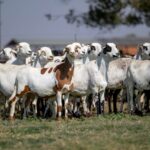Managing finances effectively is crucial for the long-term sustainability of any farming operation. In South Africa, farmers face unique challenges such as fluctuating weather patterns, unpredictable market conditions, and rising input costs. Good financial management can help farmers navigate these hurdles and improve profitability. Here are key financial management tips for South African farmers to consider:
1. Develop a Detailed Farm Budget
Creating a comprehensive budget is the foundation of sound financial management. This budget should account for all expenses (e.g., seeds, fertilizers, labor, equipment) and expected revenues. It’s essential to break down costs into categories such as fixed (e.g., land, machinery) and variable (e.g., fuel, seeds, wages). Regularly update your budget to reflect changes in market prices or unforeseen expenses, ensuring you stay on top of your financial situation.
2. Embrace Modern Record-Keeping Practices
Accurate and up-to-date record-keeping is essential for tracking cash flow and making informed decisions. Use modern accounting software or mobile apps designed for farming to help you record income, expenses, and inventory movements. This will allow you to monitor your financial performance and identify areas for improvement, such as reducing unnecessary costs or improving production efficiency.
3. Diversify Income Streams
Diversification can be a vital strategy to mitigate financial risks. If one crop or livestock type fails due to poor weather or disease, having another source of income can cushion the blow. Consider expanding into complementary farming activities, such as agritourism, or look into value-added products like processed goods. Diversification can help stabilize income in unpredictable markets.
4. Invest in Farm Insurance
Unforeseen events such as droughts, floods, or pests can devastate a farming operation. Farmers in South Africa should invest in appropriate insurance coverage to protect against these risks. Crop insurance, livestock insurance, and machinery insurance can help cover losses and reduce the financial burden when things go wrong. Regularly review your insurance policies to ensure they remain relevant to your farming activities.
5. Understand Market Trends
Keeping an eye on market trends is vital for maximizing profits. Understand the demand cycles for your products, and stay informed about consumer preferences. For instance, there is a growing demand for organic and sustainably produced food. Staying ahead of such trends can enable you to adjust your production to meet market demands, securing better prices.
6. Control Input Costs
The cost of inputs like seeds, fertilizer, and machinery can be one of the largest expenses for South African farmers. Look for ways to reduce these costs, such as bulk purchasing, negotiating with suppliers, or using sustainable farming practices that reduce the need for chemical inputs. Invest in modern technologies that improve efficiency, such as drip irrigation or precision agriculture tools, which can reduce water and fertilizer waste.
7. Plan for Long-Term Capital Investments
Investing in long-term assets such as land, machinery, or irrigation systems is important for expanding or maintaining a competitive edge. However, these purchases should be planned carefully. Ensure that you have a clear return on investment (ROI) projection before making any large capital purchases. Farmers should also consider financing options like government grants, agricultural loans, or subsidies to make these investments more affordable.
8. Monitor Cash Flow Closely
Managing cash flow is vital in a seasonal industry like farming. Ensure you have enough liquidity to cover costs during off-seasons. You can do this by timing your expenses to coincide with your peak income periods and setting aside reserves during periods of surplus. Consider working with a financial advisor to develop a cash flow management plan that suits the seasonal nature of farming.
9. Take Advantage of Tax Benefits
South African farmers are eligible for several tax deductions and benefits that can reduce the overall tax burden. For example, depreciation on equipment, costs related to soil conservation, and certain capital expenditures may be deductible. It’s essential to stay informed about these benefits and consult with a tax professional to ensure you are taking full advantage of them.
10. Seek Professional Financial Advice
Finally, seeking professional financial advice is a wise move for any farmer looking to improve their financial management. Working with an agricultural accountant or financial advisor can provide you with insights tailored to your specific operation. They can help with tax planning, loan structuring, and long-term financial strategies that align with your farming goals.
Financial management is a critical component of any successful farming business in South Africa. By implementing these tips—ranging from effective budgeting to cash flow management and tax planning—farmers can position themselves to weather challenges, seize new opportunities, and improve their farm’s profitability. Sound financial planning can ensure that your farm not only survives but thrives for generations to come.
Join 'Farmers Mag' WhatsApp Channel
Get the latest Farming news and tips delivered straight to your WhatsApp
CLICK HERE TO JOIN






